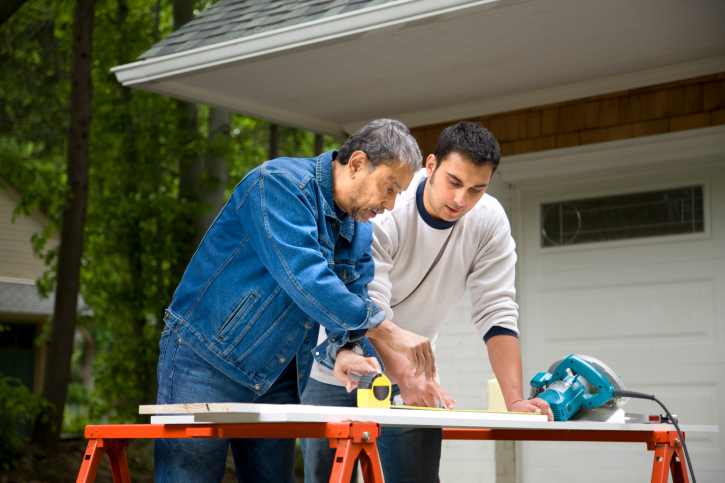What Financial Preparations Should I Make Before Applying For A Mortgage?
 Getting a mortgage isn’t an easy thing to do. Before a lender will put down tens of hundreds of thousands of dollars, it wants to know that the borrower can handle the loan so that it will get paid back. to this end, there are three things that a potential homebuyer can do to prepare for the mortgage approval process.
Getting a mortgage isn’t an easy thing to do. Before a lender will put down tens of hundreds of thousands of dollars, it wants to know that the borrower can handle the loan so that it will get paid back. to this end, there are three things that a potential homebuyer can do to prepare for the mortgage approval process.
Managing Debts
For many homebuyers, managing their credit score is the biggest challenge. Mortgage lenders like buyers with strong credit. While getting strong credit usually isn’t something that can be done overnight, paying bills on time, all of the time can help to build a positive profile.
Using as little credit as possible is also helpful, since high utilization of existing credit lines can harm a borrower’s score. Having less debt can also reduce monthly payments, making it easier to qualify for a larger mortgage.
Managing Income
Lenders look for two things when it comes to a borrower’s income:
- Stable incomes are preferred, so being able to prove the income with a W-2 form or other documentation is usually required. Self-employed people will typically need to prove their income with their tax returns, so taking high write-offs can make it harder to qualify.
- A borrower’s income should be significantly higher than his total monthly debt payments. Lenders divide a borrower’s monthly payments including their proposed mortgage into the gross monthly income. If the payments exceed a set percentage, the lender will shrink the mortgage until it considers the payment affordable.
Managing Paperwork
To qualify for a mortgage, borrowers typically need to submit a comprehensive file of supporting documentation. This can include tax returns, pay stubs and bank and investment account statements.
Since lenders frequently want some historical data, it can be a good idea for people considering applying for a mortgage to start collecting documentation months before they actually begin the mortgage application process. That way, they will have everything the lender wants and when the lender needs it.

 If you’re planning to remodel or renovate your home in the near future – whether to provide a better living environment or as part of a house flip – you’ll need to find a way to pay for your home improvements. There are several different possible sources of renovation money, each with their own advantages and disadvantages. One option that is gaining popularity is mortgage refinancing.
If you’re planning to remodel or renovate your home in the near future – whether to provide a better living environment or as part of a house flip – you’ll need to find a way to pay for your home improvements. There are several different possible sources of renovation money, each with their own advantages and disadvantages. One option that is gaining popularity is mortgage refinancing. If you’re ready to buy a home, getting approved for a mortgage is a critical step that you can’t skip or rush. And although it may seem like the lenders can be a bit arbitrary in their approvals, there’s actually a detailed set of criteria they look for when approving or denying an application.
If you’re ready to buy a home, getting approved for a mortgage is a critical step that you can’t skip or rush. And although it may seem like the lenders can be a bit arbitrary in their approvals, there’s actually a detailed set of criteria they look for when approving or denying an application.